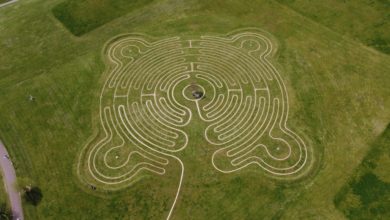
Have you ever waited on the line for an hour only to hear that your call can’t be taken at the moment? Sounds exasperating, right? But you persist because it’s crucial. This, my dear readers, serves as a pretty solid metaphor for the job interview process. You might have to bear long periods of silence, wait for feedback that never comes, or prepare for interviews that might end up getting rescheduled. But like the desperate call you wait to be answered, patience becomes a necessary part of your arsenal when navigating the job market.
Now, I’m not preaching idleness or endorsing procrastination here. Far from it. I’m talking about an active, mindful, disciplined form of patience that can be your best ally in an era where instant gratification seems to be the new norm. This patience is golden, indeed, and today we delve into why it matters so much in the job interview process. So, tighten your seatbelts as we embark on this insightful ride.
Let’s start with a quote from Steve Huffman, the co-founder of Reddit, who once said, “I’ve learned in my career that the best hires are worth waiting for.” This echoes the sentiment of many industry leaders who understand the importance of patience in securing the best talent. While the urge to fill a position quickly is a common one, especially in dynamic industries, rushing the process can lead to hiring the wrong person – a costly mistake.
Research by the Society for Human Resource Management (SHRM) indicates that a bad hire can cost up to five times their annual salary, depending on the role and the seniority. More than the financial implications, a wrong hire can disrupt team dynamics, reduce morale, and affect productivity. To avoid such pitfalls, a certain degree of patience in the hiring process becomes essential.
From the job seeker’s perspective, it’s a test of nerves. Having spoken to countless individuals during my career, I’ve often heard tales of frustration. Why don’t recruiters get back sooner? What’s taking them so long to schedule the next round? Why don’t they have a clear timeline for the process? These are questions that perplex job seekers.
But the one thing to understand here is that often, these delays are not intentional. A LinkedIn Talent Solutions report found that 63% of recruiters say their biggest challenge is juggling multiple tasks at once. It’s not that your application is being ignored, it’s that the person responsible for it is likely overwhelmed. That’s where your patience comes in.
In his book, “Wait: The Art and Science of Delay”, Frank Partnoy, a professor of law and finance at the University of San Diego, explores the idea of managing delay effectively. He advocates for ‘active waiting’ as opposed to ‘passive waiting’. The former involves staying engaged, enhancing your skills, networking, and researching the company further. So while you’re waiting to hear back after an interview, consider this period as an opportunity to make yourself an even stronger candidate.
The scenario of ‘patience in the interview process’ isn’t restricted to one country or one industry. A study by Glassdoor found that the average interview process in the U.S. took 23.7 days in 2017, up from 22.9 days in 2014. On the other hand, in France, Germany, and the U.K., the interview process took anywhere from 28 to 32 days on average. Regardless of geographical location, the element of patience persists across the board.
At the end of the day, it’s about understanding that the interview process is a marathon, not a sprint. Patience can be your silent companion, keeping you grounded when anxiety kicks in. But remember, patience should not be an excuse for a lack of follow-up or proactivity. Strike a balance, be patient, but also assertive in your communication.
In her book “Lean Out”, Elissa Shevinsky beautifully illustrates the value of patience and persistence in the face of professional challenges. She speaks of the long road to success as being full of setbacks, rejections, and waiting periods. Yet it’s those who remain steadfast, patient, and committed who eventually see the fruit of their labors.
It’s also crucial to understand that every organization has its unique hiring process. Some might have a fast-track procedure that takes a few days, while others may stretch over months. Larger corporations with extensive hiring protocols might fall into the latter category. According to a report from SHRM, it can take up to 36 days to fill a given position in larger companies compared to 25 days in smaller organizations. Hence, patience is not just a virtue but a necessity in these circumstances.
Establishing robust relationships with recruiters can be one of the most effective strategies in your job search toolkit. Much like forging connections in any other sphere of life, building a strong rapport with recruiters demands mutual respect, understanding, and regular communication.
Research from LinkedIn indicates that more than 35% of people got their current job through a referral, and recruiters often serve as that initial connection. Developing a good relationship with them can pave the way for better job prospects, not just for your current search but for future opportunities as well. An engaged, communicative recruiter can offer vital industry insights, provide feedback on your resume, and aid in interview preparation.
Following up after interviews is a critical step in demonstrating your interest in a position and maintaining that relationship with the recruiter. According to a Robert Half survey, 80% of hiring managers find post-interview thank you notes helpful, yet only 24% of applicants send them. By following up and expressing gratitude, you distinguish yourself from the majority of candidates.
Further, a CareerBuilder survey revealed that 22% of employers are less likely to hire a candidate if they don’t send a follow-up note after an interview. The simple act of following up exhibits courtesy and a continued interest in the role. It keeps the line of communication open, ensuring that you remain at the forefront of the recruiter’s mind.
Moreover, keeping the dialogue open with recruiters, even when you’re not actively job hunting, can lead to unexpected opportunities. An OfficeTeam survey found that 61% of workers maintain contact with one or more recruiters. This networking strategy can yield dividends when the right opportunity comes along.
Navigating the complex terrain of job interviews can be a challenging endeavor, but building robust relationships with recruiters and the diligent practice of following up can make the journey more manageable. Remember, every interaction is an opportunity to showcase your skills, your professionalism, and your potential. Make them count.
As a candidate, patience communicates maturity, understanding, and professionalism to potential employers. If you can handle the waiting game with grace, it demonstrates that you’ll likely manage workplace stress and pressure with similar calmness.
Patience also allows you to reflect and learn. As international career coach Edith Moricz puts it, “A rejection or delay is not a denial; it’s a lesson in progress. Embrace patience and watch yourself grow not just as a candidate, but as an individual.”
As we wrap up, remember these words by Paulo Coelho from ‘By the River Piedra I Sat Down and Wept’, “Waiting is painful. Forgetting is painful. But not knowing which to do is the worst kind of suffering.” In the job interview context, eliminate the suffering. Know that waiting is part of the process, be proactive but patient, and trust in the journey.
Indeed, patience is golden in the job interview process. It’s a test of endurance, a measure of your perseverance, and, quite often, a silent determinant of your potential success. So, the next time you’re feeling restless waiting for that email or call, remember to channel your energy into active waiting. Like all good things, the right job opportunity often takes time to materialize. And when it does, you’ll appreciate the wait even more. Patience, dear readers, is indeed golden.




